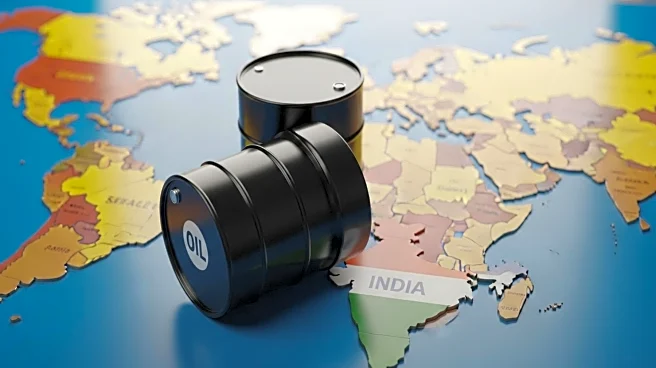What is the story about?
What's Happening?
India's Finance Minister Nirmala Sitharaman has announced that India will continue purchasing Russian oil, despite demands from U.S. President Trump to halt these transactions. This decision comes as India seeks to manage its import costs, with Russian oil offering a financially viable option. The Trump administration has responded by doubling tariffs on Indian goods to 50%, one of the highest rates globally. Commerce Secretary Howard Lutnick reiterated the U.S. stance, urging India to cease its Russian oil imports. The situation is further complicated by India's strengthening ties with China and Russia, as evidenced by recent meetings between leaders of these nations.
Why It's Important?
The continuation of Russian oil purchases by India highlights the geopolitical tensions between the U.S. and India, particularly in the context of U.S. tariffs. These tariffs could significantly impact India's economy, with Citigroup Inc. estimating a potential 0.6-0.8 percentage point reduction in India's annual GDP growth. The decision also underscores India's strategic economic priorities, balancing international pressure with domestic financial needs. The broader implications include potential shifts in global trade dynamics and alliances, as India navigates its relationships with major powers like the U.S., Russia, and China.
What's Next?
India is expected to introduce measures to support businesses affected by the high U.S. tariffs, with a relief package reportedly in development. The ongoing diplomatic tensions may lead to further negotiations or retaliatory actions, as both nations seek to protect their economic interests. Additionally, India's deepening ties with China and Russia could influence future trade policies and international relations, potentially altering the balance of power in the region.















